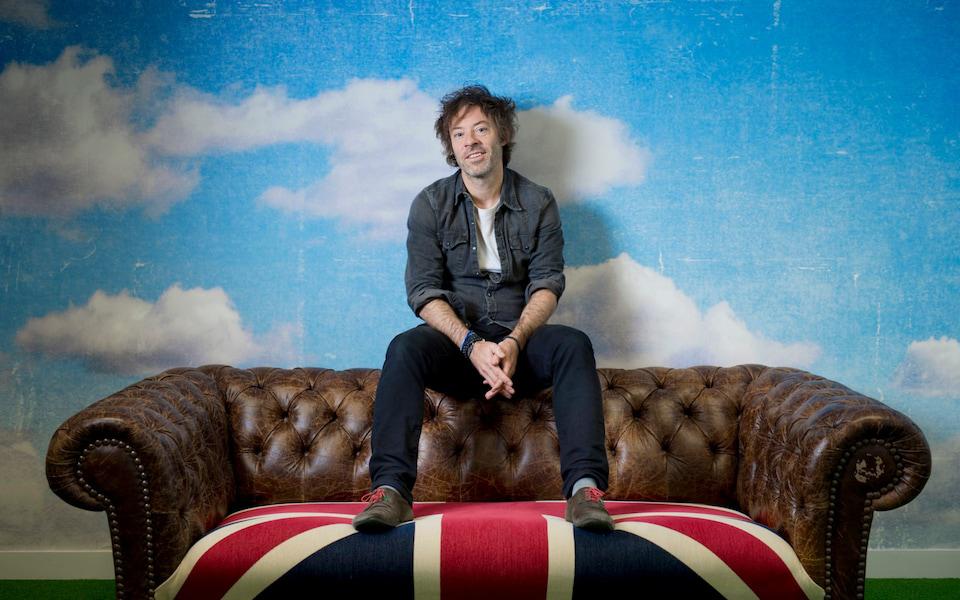As you may have heard, mindfulness is the new jogging. This is not to be confused with sitting, which is the new smoking, or scooting: the new cycling. Unclear? Don’t worry, there are apps for that. The most popular was created by Michael Acton Smith, a British entrepreneur more commonly known for the children’s computer craze Moshi Monsters.
For a monthly fee of £9.99, Calm provides a library of bedtime stories for adults, calming music, meditation tutorials and video and audio to help reduce anxiety, gain better focus and even hone professional or parenting skills. Its closest rival, Headspace, is another hit among the Silicon Valley crowd. It too was created by a Briton.
This seems at odds with our culture. While the UK is known for keeping calm and carrying on, actual meditation was largely considered the preserve of the almond milk-drinking yoga crowd on America’s west coast.
Google has offered meditation to its employees for years. Steve Jobs spent months searching for gurus in India and was married by a Zen expert. Acton Smith, on the other hand, has an air of Bob Geldof about him, but with better style. The 44-year-old is a member of the Silicon Valley expat member’s club GBx Global, which holds black-tie balls to the amusement of the casually dressed natives.
But Acton Smith doesn’t need a pair of sandals. Calm is now worth more than $250m (£191m), he claims.
In June he and co-founder Alex Tew secured $27m from investors including former One Direction pop star Harry Styles. Calm brought in revenue of $22m in 2017 and is forecast to bring in $80m by the end of this year, Acton Smith tells The Sunday Telegraph.
It is among the leaders in the US meditation market, which Marketdata Enterprises forecasts is growing by 11pc on average a year and is tipped to be worth more than $2bn by 2022. “It is funny that two of the biggest companies in this space are two British guys that went over to California,” he says. “There were many people doing this before we arrived but we came at this from a new angle which was more ‘brand’-led. We looked at meditation and mindfulness and took out the woo-woo-ness and the weirdness and religious connotations. Neither brand has lotus leaves or associations you might have had with meditation or mindfulness. Maybe just having a bit of British cynicism and humility and all the traits that makes Britain great, and marrying that with the talent of Silicon Valley, just worked.”
For those who take their wellness trends with a dose of cynicism, Calm and Headspace are a good place to start. There is little pretension, which may be core to their success out of a dizzying array of apps – about 1,300 at last count, according to Sensor Tower.
Headspace offers soothing mental exercises, rendered without airs by co-founder and Bristolian Buddhist monk Andy Puddicombe. He left the UK midway through a sports science degree after a string of tragic events put him on track for a mental breakdown, including the death of two friends at the hands of a drunken driver and the death of a girlfriend. He went on a 10-year journey around the world and was ordained as a Tibetan Buddhist monk in northern India. He later met Rich Pierson, a marketing executive, who came to him for help.
“I was in a really bad place,” Pierson says, “and that kind of manifested itself as acute anxiety, and so when I met Andy it was as much out of desperation as anything else. He started off as my meditation teacher and became my best friend and then we started a business.” Pierson believes Headspace was formed from a perfect mix of Britishness, the culture at that time – 2012 – and being a man.
“Brits are not particularly good at talking about anything emotional and when it is men it is even worse. My friends were definitely not talking about if they were anxious and if they were depressed,” he says.
It was this “uniquely British” failing that helped the pair create the first mindfulness app, he adds. The business was valued at $250m in 2017 (Pierson says the true figure is “north of” that) with a million subscribers. Puddicombe, the director of all things meditation on the product side, has been described by the New York Times as doing for meditation what Jamie Oliver did for food.
Calm, on the other hand, has a humour to it that is quintessentially British. Bedtime stories for adults include the dulcet tones of Stephen Fry talking about something so tedious – a 25-minute discussion about lavender fields in Provence – that you cannot help but drift off.
“We have taken this ancient practice and rebranded it for the western world,” Acton Smith says. While moving abroad has helped, both he and Pierson insist London is one of the most creative cities in the world. “But people think way bigger here and the infrastructure is set up to really build projects in a way we don’t have in Europe,” Pierson says.




